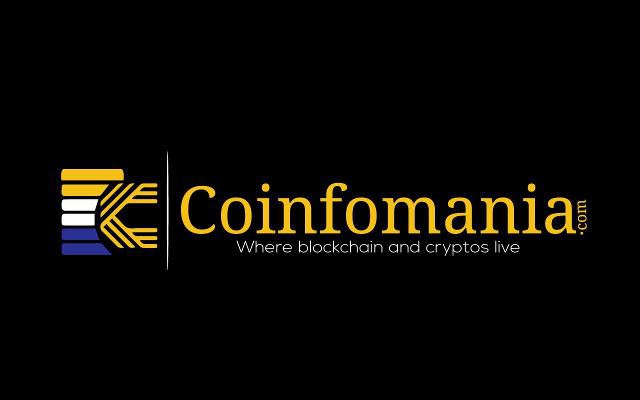Market and Crypto Trends After Key Earnings
0
0

Major firms reported results that shifted both stock and crypto markets. While social media and UK casinos not on GamStop met varied expectations, retail and food service chains flagged weaker demand and tighter margins.
Technology names still showed resilience, yet mixed earnings underscored caution among investors. This week’s data set the stage for deeper moves: equities and digital assets reacted in tandem, DeFi platforms saw fresh inflows, and stablecoins gained traction as payment tools.
Regulatory updates in the UK, EU and US reshaped confidence, while energy and mining costs influenced crypto profitability. Together, these factors outline the current landscape for both traditional and digital markets.
Leading reports
Tech names still show resilience. Consumer firms face weaker demand and tighter margins.
Impact on crypto markets
Crypto assets tracked equity swings. When big tech rose, risk appetite improved. Yet consumer worries hit both stocks and coins.
Bitcoin performance
Bitcoin traded between £7,500 and £8,200 in recent days. After earnings news, it fell to £7,600. Traders leave positions ahead of key events.
Volatility remains high. Average daily range sits above £300. Volume dips suggest traders await direction.
Ether moves
Ether followed Bitcoin, sliding 5% from £400 to £380. Network fees stayed below £5 per transaction. Major protocol upgrades promise lower costs.
Institutional and retail flows
Funds added near $150m in net crypto this week. ETFs in Europe and discussions in the US drove interest.
- Bitcoin gained 60% of flows
- Ether took 30%
- Other tokens captured 10%
Meanwhile, retail traders withdrew small amounts from exchanges. That points to less activity from individual investors.
Why institutions buy now
- Cheaper valuations after late 2024 rally
- ETF approvals in Europe raise trust
- Portfolio diversification ahead of inflation readings
These buyers view crypto as a hedge and a growth play.
Decentralised finance draws more capital
DeFi remains a key use case. Total value locked (TVL) stands near £30bn.
Top protocols by TVL
Borrowers use DeFi loans to trade and hedge. Lenders earn yields far above bank rates.
Risks in DeFi
- Smart contract bugs can drain funds
- Protocol governance may stall in crisis
- Over-collateralisation limits capital efficiency
Careful choice of platforms and regular audits help reduce these risks.
Mining and energy outlook
Bitcoin mining costs depend on electricity rates. With oil at £45 a barrel, some gas plants cut power prices for miners.
Mining profitability
Higher network difficulty pushes costs up. Miners with cheap power stay profitable even in pullbacks.
Stablecoins reshape payments
Stablecoins hold £95bn in government debt. By 2030, that could jump to £1.6trn. Firms explore stablecoins for global payouts.
Use cases for merchants
- Cross-border payments in minutes
- Avoidance of high currency fees
- Programmable payouts with smart contracts
Some e-commerce sites now add stablecoin options. Travel firms test on-chain ticket sales.
Regulation and policy moves
Governments set new crypto rules. Clear standards may boost adoption, but delays create uncertainty.
UK and EU steps
- UK to mandate reserves for stablecoin issuers
- EU finalises Markets in Crypto-Assets law
US stance
- SEC yet to approve spot Bitcoin ETF
- CFTC seeks clearer jurisdiction over derivatives
Regulatory clarity will guide institutional strategies.
Layer 2 and scaling solutions
Ethereum’s layer 2 networks grow. Arbitrum and Optimism each host over £3bn in assets.
Benefits of layer 2
- Lower fees under £0.50 per tx
- Faster confirmation in seconds
- Support for NFTs and gaming
These chains ease congestion on main networks and cut costs for users.
Cybersecurity threats
Crypto hacks rose 15% this quarter. Platforms that secure keys and run regular audits saw fewer breaches.
Common attack vectors
- Phishing and credential theft
- Flash loan exploits
- Rogue airdrop scams
Best practice includes hardware wallets and multi-sig wallets for large holdings.
Market outlook for summer
Factors to watch:
- Bitcoin halving effects on new supply
- Ethereum Shanghai upgrade unlocking 15m ETH
- ETF launches in US, if approved
- UK tax season and capital gains selling
- Geopolitical tensions impacting on-chain flows
Each may trigger swings or trends in prices.
Advice for investors
- Allocate no more than 5–10% of portfolio to crypto
- Use limit and stop orders to manage risk
- Keep cash reserves in stablecoins for quick buys
- Monitor on-chain data for large transfers
Staying cautious helps during volatile moments.
Final view
Crypto markets face a busy season. Technical upgrades, policy developments and market cycles will shape moves. Clear planning and attention to risk can help investors stay prepared.
Frequently Asked Questions
What drives Bitcoin price swings?
Bitcoin moves on supply shocks like halvings, institutional demand, macro trends and regulatory news.
How can I earn yield in DeFi?
Lend stablecoins on platforms like Aave or Compound. Check protocol audits and lock-up terms.
Are stablecoins safe for payments?
They use reserves in government debt for stability. Look for audited issuers with clear backing.
What is Ethereum’s Shanghai upgrade?
A network update allowing staked ETH withdrawals. It may unlock ~15 million tokens and boost liquid supply.
How do layer 2 solutions work?
They run transactions off main chain but settle final state on it. This cuts fees and speeds up transfers.
Should I worry about crypto hacks?
Security risks exist. Use hardware wallets for large funds, enable multi-sig, and stick to vetted platforms.
When might spot Bitcoin ETFs launch?
US approvals remain pending. Europe already has ETFs, and US regulators may decide later this year
The post Market and Crypto Trends After Key Earnings appeared first on Coinfomania.
0
0
 Manage all your crypto, NFT and DeFi from one place
Manage all your crypto, NFT and DeFi from one placeSecurely connect the portfolio you’re using to start.





